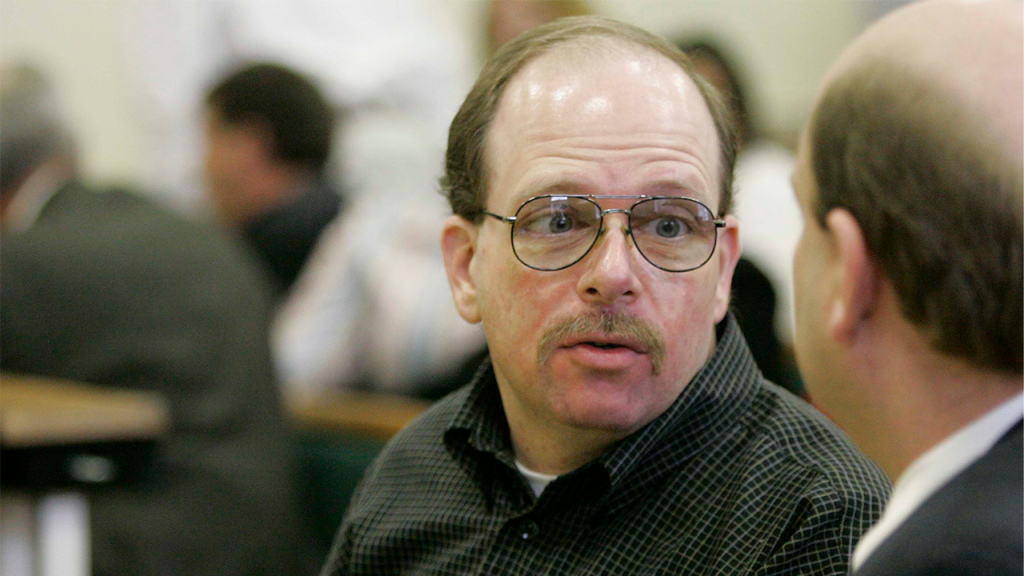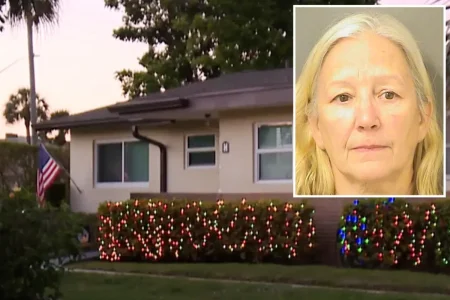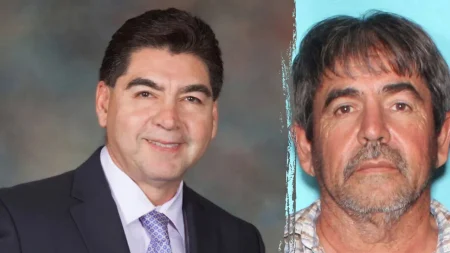South Carolina Death Row Inmate’s Mental Competency in Question as Execution Delayed
In the quiet town of Abbeville County, South Carolina, a decades-old tragedy continues to unfold as Steven Bixby, a 58-year-old death row inmate, fights against his scheduled execution. Bixby was set to die in May for the 2003 killings of two police officers, but the South Carolina Supreme Court intervened, halting the execution to determine if he is mentally competent to face death. The case raises profound questions about the intersection of mental health, justice, and the constitutional requirements for executing someone who may not fully comprehend their situation or be able to assist in their own defense.
The tragic events that landed Bixby on death row began with what might seem mundane – a land dispute between the Bixby family and a construction crew widening a road near their property. What followed, however, was anything but ordinary. According to court records, Bixby shot Abbeville County deputy Danny Wilson when the officer knocked on his family’s front door. In a disturbing turn, Wilson’s dying body was pulled inside the home and restrained with his own handcuffs. When state Constable Donnie Ouzts arrived to check on his missing colleague, he too was killed, triggering a 12-hour standoff with hundreds of shots exchanged between law enforcement and the Bixby family. The violence that December day in 2003 forever changed the community and set Bixby on a path toward death row, where he has remained for nearly two decades while his parents, also charged with murder, have since died.
The legal battle surrounding Bixby’s execution has taken a unique turn, centering not just on the horrific nature of his crimes but on his mental state and bizarre beliefs. A psychologist evaluating Bixby reported that while he understands what led to his death sentence, he also believes the blood found on his clothes the night of the killings contains Jesus Christ’s DNA. His handwritten legal filings reveal a man who believes judges ruling against him are guided by Satan and who considers most laws unconstitutional. During a recent hearing where Circuit Judge R. Scott Sprouse gave him ten minutes to speak, Bixby used his time to insist he was innocent, claiming the tragedy was “all over them wanting to steal my parents’ property.” Later, in sarcastic handwritten motions filled with legal-sounding phrases but lacking coherent legal reasoning, he demanded his freedom, writing dramatically, “I am an innocent man!! Let freedom ring & let those committing treason swing!!!”
The question before the court now is whether these beliefs represent merely extreme political views or true mental incompetence that would make his execution unconstitutional. Bixby’s lawyers argue that he is convinced the U.S. legal system is fundamentally flawed and unconstitutional, preventing him from sharing information that might help his defense. They’ve presented expert testimony suggesting that years of isolation on death row have only deepened his delusional thinking. Prosecutors counter that Bixby’s anti-government beliefs, while extreme, are shared by others in the “sovereign citizen” movement and don’t prevent him from understanding why the state seeks to execute him. Their expert testified that Bixby views himself as a martyr prepared to die for his beliefs, making him difficult but not impossible to defend.
South Carolina law presents an interesting distinction in this case. While federal standards consider an inmate competent for execution if they understand that their crime led to their death sentence – which Bixby seemingly does – state law requires an additional finding that death row inmates be able to rationally communicate with their lawyers. This higher standard has become the central point of contention. Can someone who believes court officials are Satanic agents, who thinks most laws are illegitimate, and who claims to have Jesus’s DNA on his clothing truly engage rationally with the legal process? The contrasting psychological evaluations highlight the challenge in making such determinations, with one expert suggesting prison isolation has made Bixby’s beliefs more delusional and fixed, while another views his stance as an extreme but coherent political position.
As Judge Sprouse considers his ruling, expected within 30 days of last month’s hearing, the case illustrates the complex moral and legal questions surrounding capital punishment in America. Beyond the horrific crime that claimed two officers’ lives, beyond the grieving families on both sides, lies a fundamental question about justice and humanity: At what point does a person’s mental state make them unsuitable for the ultimate punishment? For Steven Bixby, quoting Thomas Jefferson and claiming to “stand on principle even if I stand alone,” the answer to that question will determine whether he lives or dies. Meanwhile, the community of Abbeville County still lives with the shadow of that violent December day, a reminder that the consequences of human actions can extend far beyond the moment of their commission, challenging our legal system’s capacity for both justice and mercy decades after the fact.








